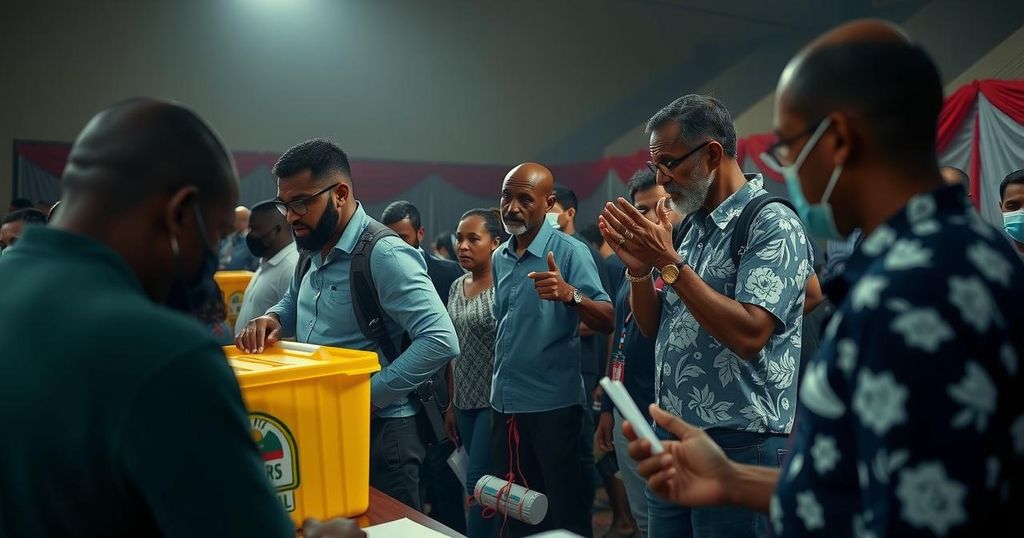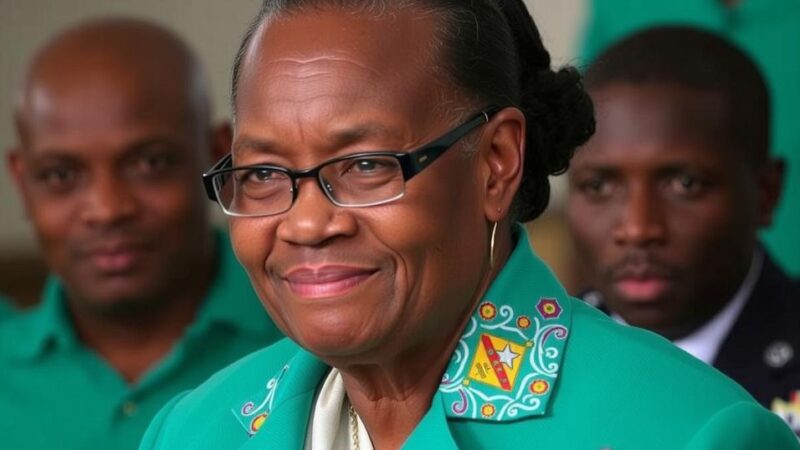Mauritius voted in a parliamentary election amid a phone-tapping scandal that raised concerns over civil liberties and governance. The election follows a historic transfer of the Chagos Islands from Britain to Mauritius, adding complexity to Prime Minister Pravind Jugnauth’s re-election bid. Voter turnout reached 70%, and both major competing parties expressed confidence in victory, though worries about potential electoral fraud were highlighted. The election results will be critical in assessing the nation’s political stability and integrity.
Mauritius conducted its parliamentary elections on Sunday, navigating a politically charged atmosphere influenced by a phone-tapping scandal that involved the leaking of clandestinely recorded conversations among political figures, diplomats, and journalists. This election followed a significant event in which Britain transferred sovereignty of the Chagos Islands to Mauritius, a development expected to bolster Prime Minister Pravind Jugnauth’s re-election prospects. However, public trust has been shaken by the scandal and a controversial social media ban imposed by the government. Two major political blocs vied for the 70-seat National Assembly: the incumbent Militant Socialist Movement led by Jugnauth and the Alliance of Change, spearheaded by former Prime Minister Navin Ramgoolam. Time-honored concerns surrounding economic and political stability, which have characterized Mauritius since its independence in 1968, were prominent topics of discussion. Preliminary voter turnout registered at 70 percent by the time polls closed, signaling robust public engagement despite the controversies. Local police ensured security at polling places, while observers from organizations such as the African Union monitored the process amid allegations of potential electoral fraud. Both Jugnauth and Ramgoolam expressed confidence in their respective campaigns. Nevertheless, the country’s democratic fabric has faced scrutiny as concerns over governance and corruption have surfaced, particularly during recent crises like the Covid-19 pandemic. Mauritius, with a population of 1.3 million, has achieved significant economic progress since independence. However, experts have pointed out a troubling trend of weakened governance and increased corruption. Recent elections have seen leadership predominantly rotate among three political families, which raises questions about the political landscape. As this election unfolds, observers remain vigilant regarding its implications for the nation’s trajectory following the notable Chagos Islands development and the contentious phone-tapping scandal.
The parliamentary elections in Mauritius represent a pivotal moment for the nation, juxtaposed with the recent cession of the Chagos Islands from British to Mauritian sovereignty. This significant geopolitical shift comes as concerns grow regarding the state of democracy and civil liberties in Mauritius, particularly following a series of scandals involving breaches of privacy through phone-tapping. Mauritius, celebrated for its democratic institutions and economic resilience, faces a challenging electoral climate further complicated by allegations of corruption and diminished accountability in governance. Such factors contribute to a charged atmosphere as the electorate seeks to determine the future direction of their country amidst rising discontent over political practices.
In conclusion, the recent parliamentary elections in Mauritius occur within a context that is both historically significant and fraught with controversy. The dual impact of the Chagos Islands sovereignty transfer and the phone-tapping scandal has amplified public scrutiny of the electoral process and the integrity of political leadership. With concerns about governance and civil liberties at the forefront, the election results will be crucial in shaping Mauritius’s democratic landscape and determining the effectiveness of its political institutions moving forward.
Original Source: www.news-expressky.com







